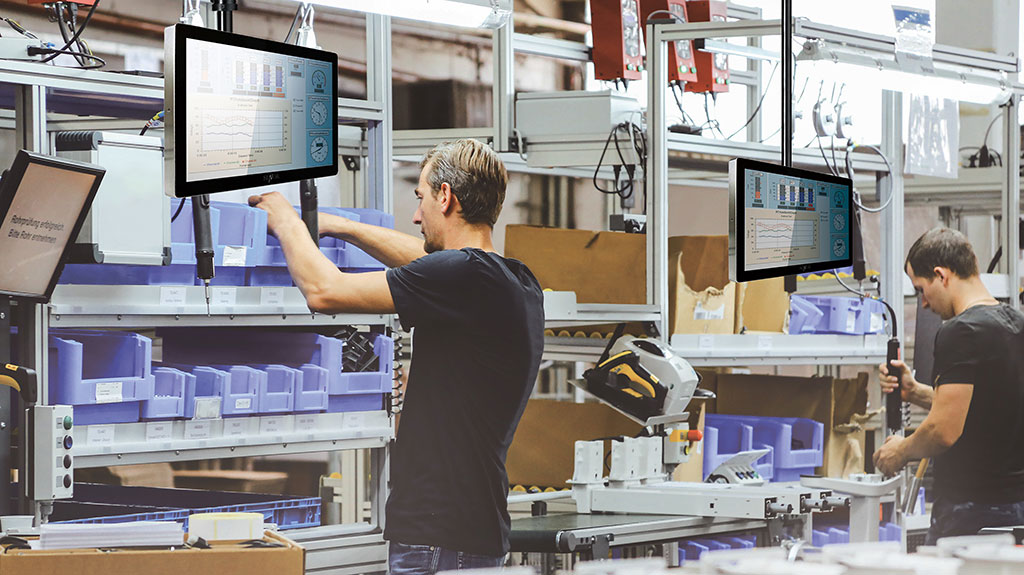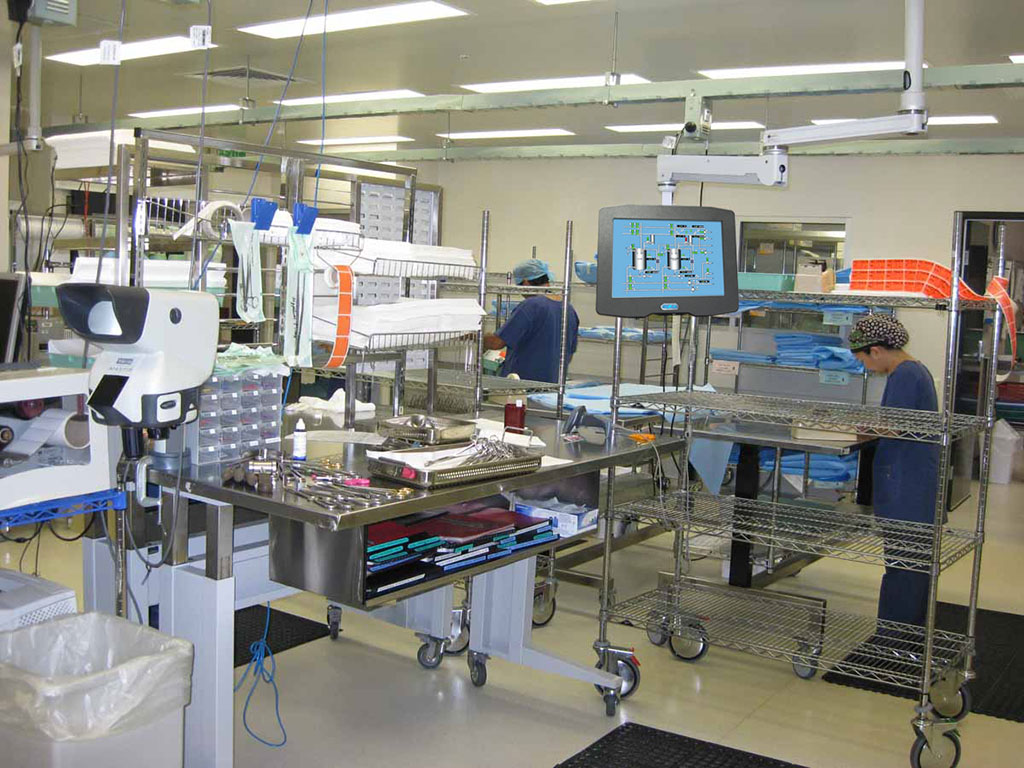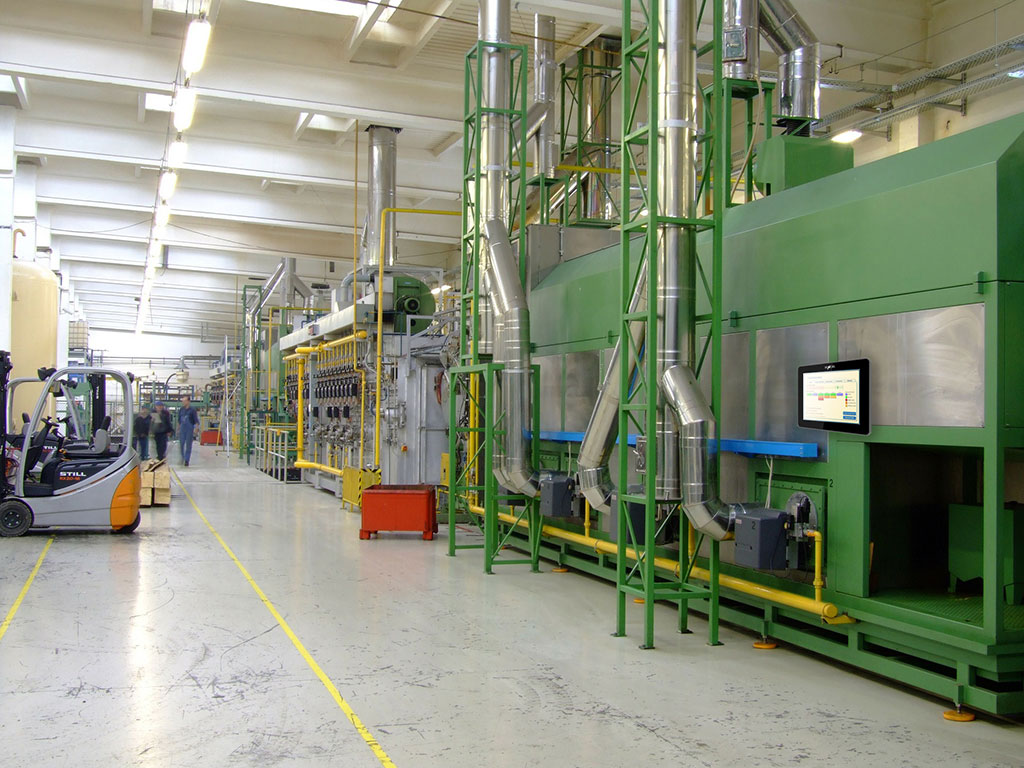SENOR Manufacturing Execution System (MES) is a device running with the customize software system used to manage and monitor the manufacturing process. It translates production plans into operational instructions, tracks and controls production activities, and collects real-time data for analysis and optimization. MES is applied in various manufacturing industries including automotive, electronics, pharmaceuticals, and food, to enhance production efficiency, quality control, and inventory management, achieving automation and integration of the production process.
SENOR MES series is a robust and integrated Manufacturing Execution System with fanless and ventless design specifically developed to be utilized in harsh environments. Featuring operational effective interface, it aims at enhancing work efficiency and offers safe working environments at the forefront. Its whole aluminum die casting case design without button mechanism aids to increase reliability of the unit without compromising on the functionality. Its compact design is compatible with various mounting solutions and is suitable for various industrial applications such as access control and factory automation.
How many types of SENOR Manufacturing Execution System?
There are 7 type of Manufacturing Execution System:
- Discrete MES:
Designed for industries that involve discrete or batch manufacturing processes, such as automotive, electronics, and aerospace. - Process MES:
Tailored for process manufacturing industries, including chemical, pharmaceutical, and food and beverage, where products are produced through continuous or batch processes. - Hybrid MES:
A combination of discrete and process MES, suitable for industries that utilize a mix of discrete and continuous manufacturing processes. - Synchronous MES:
Focuses on real-time data collection, monitoring, and control, ensuring synchronization between production activities and resources. - Batch MES:
Specifically designed for industries that utilize batch processing, allowing efficient management of recipes, materials, and equipment for batch production. - Lean MES:
Aligned with lean manufacturing principles, emphasizing waste reduction, process optimization, and continuous improvement. - Regulatory Compliance MES:
Tailored to industries with strict regulatory requirements, such as pharmaceuticals and medical devices, ensuring adherence to quality and compliance standards.
Each type of SENOR MES is designed to cater to specific manufacturing processes and industry requirements. SENOR Manufacturing Execution System Is your best choice.
What’s different between MES and ERP system?
MES (Manufacturing Execution System) and ERP (Enterprise Resource Planning) systems are both used in the manufacturing industry, but they serve different purposes and focus on different aspects of the manufacturing process. Here’s a breakdown of the key differences between MES and ERP systems:
- Purpose:
MES: Manufacturing information system is designed to manage and control the execution of manufacturing operations on the shop floor. They focus on real-time monitoring, tracking, and control of production activities, including machine performance, labor management, inventory tracking, quality control, and scheduling.ERP: ERP systems, on the other hand, are designed to integrate and manage various business processes across different departments and functions within an organization. They provide a centralized system for managing resources, such as finance, procurement, human resources, inventory management, sales, and customer relationship management. - Scope:
MES: MES system with MES software primarily focuses on the execution level of manufacturing operations. They handle activities related to production scheduling, material tracking, equipment monitoring, real-time data collection, and quality control on the shop floor.ERP: ERP systems have a broader scope and cover a wide range of business processes beyond manufacturing. They provide end-to-end visibility and control over business operations, including finance, supply chain management, customer management, human resources, and other administrative functions. - Level of Detail and Real-time Control:
MES: Manufacturing information system offer detailed, real-time visibility and control over manufacturing operations. They collect data directly from machines, operators, and sensors on the shop floor to monitor production progress, identify bottlenecks, and adjust in real-time to optimize productivity and efficiency.ERP: ERP systems focus more on aggregating and analyzing data from various sources to provide strategic insights and support decision-making at a higher level. While they may offer some level of real-time data integration, their primary goal is to provide a holistic view of the entire organization’s performance and enable long-term planning and optimization. - Integration:
MES: MES systems are typically integrated with the equipment and machines on the shop floor, as well as other systems like quality management systems and data collection devices. They often rely on real-time data exchange to ensure accurate and up-to-date information for decision-making.ERP: ERP systems are designed to integrate multiple functions and departments within an organization. They facilitate data sharing and synchronization across various business units, enabling seamless coordination and collaboration between different departments.
In summary, MES with customized Manufacturing information system focus on real-time monitoring, control, and optimization of manufacturing operations on the shop floor, while ERP systems provide a comprehensive suite of integrated applications to manage and streamline various business processes across the organization. While they may overlap in some areas, their primary objectives and areas of focus differ significantly.
The 8 points before to choose the Manufacturing Execution System that you must know.
Choosing a Manufacturing Execution System (MES) requires careful consideration of several factors. SENOR has some steps to guide you in the selection process:
- Define your goals and requirements:
Clearly outline your objectives and identify the specific needs and challenges of your manufacturing operation. Consider aspects such as production processes, scalability, integration with existing systems, data collection and analysis, quality control, and regulatory compliance. - Conduct a thorough evaluation:
Research and evaluate different MES vendors and systems in the market. Consider factors such as system functionality, ease of use, flexibility, industry expertise, support, and maintenance. - Assess system compatibility:
Ensure that the MES you choose is compatible with your existing infrastructure, including hardware, software, and communication protocols. Evaluate integration capabilities and determine if the MES can seamlessly connect with your enterprise resource planning (ERP) system, equipment, and other relevant systems. - Seek user feedback and references:
Talk to other manufacturers who have implemented the MES systems you are considering. Gather feedback and insights on the performance, reliability, and user experience of the systems. Request references from the vendors and contact their existing customers to understand their satisfaction levels. - Consider scalability and future needs:
Assess the MES’s ability to scale and adapt to your future requirements. Ensure that the system can accommodate growth, new product lines, and changing manufacturing processes. Additionally, consider the vendor’s roadmap for product development and updates to ensure long-term viability. - Evaluate cost and return on investment (ROI):
Consider the upfront costs, licensing fees, implementation expenses, and ongoing maintenance and support fees associated with the MES. Evaluate the potential ROI based on anticipated benefits such as improved productivity, quality, efficiency, and reduced downtime. - Request demonstrations and trials:
Request demos and trials from shortlisted vendors to assess the usability and functionality of the MES. Use these opportunities to validate the system’s capabilities against your specific requirements and evaluate user-friendliness. - Involve key stakeholders:
Involve key stakeholders, including production managers, IT professionals, quality control teams, and shop floor operators, in the decision-making process. Consider their feedback and ensure their buy-in to increase the chances of successful implementation and adoption.
By following these steps and conducting a thorough evaluation, you can choose SENOR Manufacturing Execution System that aligns with your specific manufacturing needs, integrates well with your existing systems, and delivers measurable benefits to your operations. Please connect with us.



